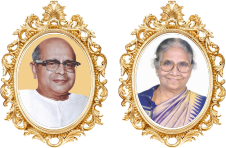
Team Members: Dr.P.Subashini, CMLI Coordinator , Professor of Computer Science
Dr.M.Krishnaveni , Assistant Professor (SG), Department of Computer Science
Dr.A.Dhanalakshmi , Associate Professor , Department of Computer Science , Gobi Arts and Science College
Ms.V.Narmadha, Technical Assistant , CMLI
Dr.Jennyfer Susan M B , Assistant Professor , CMLI
Mr. Sesan D , II MCA , Gobi Arts and Science College
Project Summary:The global population includes a significant number of speech and hearing-impaired individuals who encounter unique communication challenges, particularly in public institutions like post offices. This study introduces the Postal Sign Recognition System for Indian Sign Language, designed to facilitate smoother interactions between post office staff and customers with hearing or speech impairments. The system's methodology involves crucial steps: data collection, preprocessing, object tracking, and recognition. Data collection utilizes Raspberry Pi and a web camera set up to capture Indian Sign Language gestures. Preprocessing techniques, including frame differencing and contour analysis, enhance the quality of collected data.
Object tracking employs sophisticated algorithms like the Lucas Kanade optical flow and Sparse flow algorithms for precise gesture localization within the video stream. Central to the system is the recognition phase, utilizing a 3D convolutional neural network (3DCNN) model. This model interprets gestures and translates them into textual or auditory outputs, enabling post office staff to comprehend and respond effectively to the communication needs of hearing and speech-impaired customers. By harnessing technology to recognize sign language or visual cues, the system addresses communication barriers these communities face. Implementing the Postal Sign Recognition System facilitates smoother interactions at post offices and underscores technology's potential to promote inclusivity and accessibility. Future research may focus on refining recognition algorithms, expanding language support, and integrating user feedback to optimize usability in real-world scenarios. This innovative solution highlights collaborative efforts to create a more inclusive environment for individuals with hearing and speech impairments.



